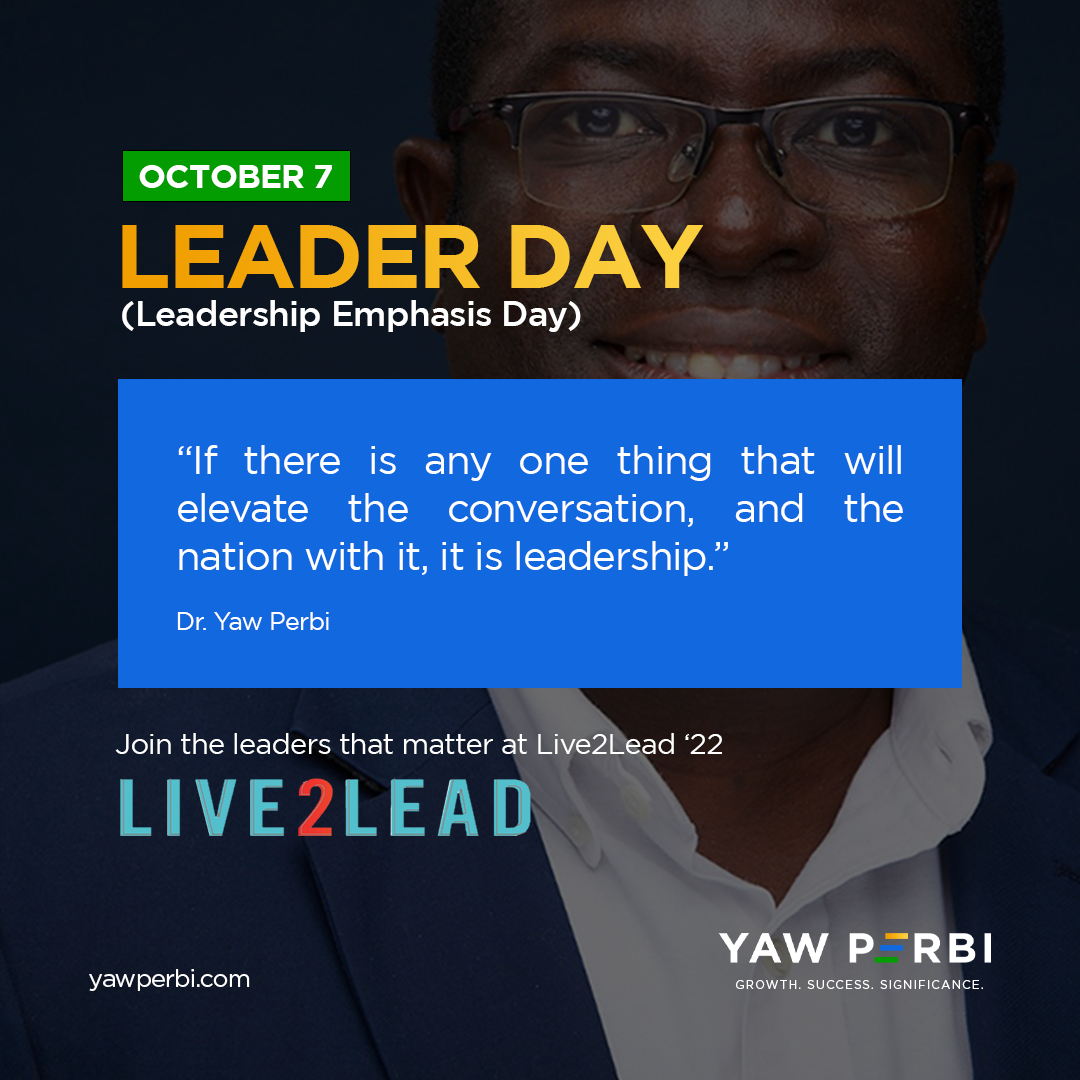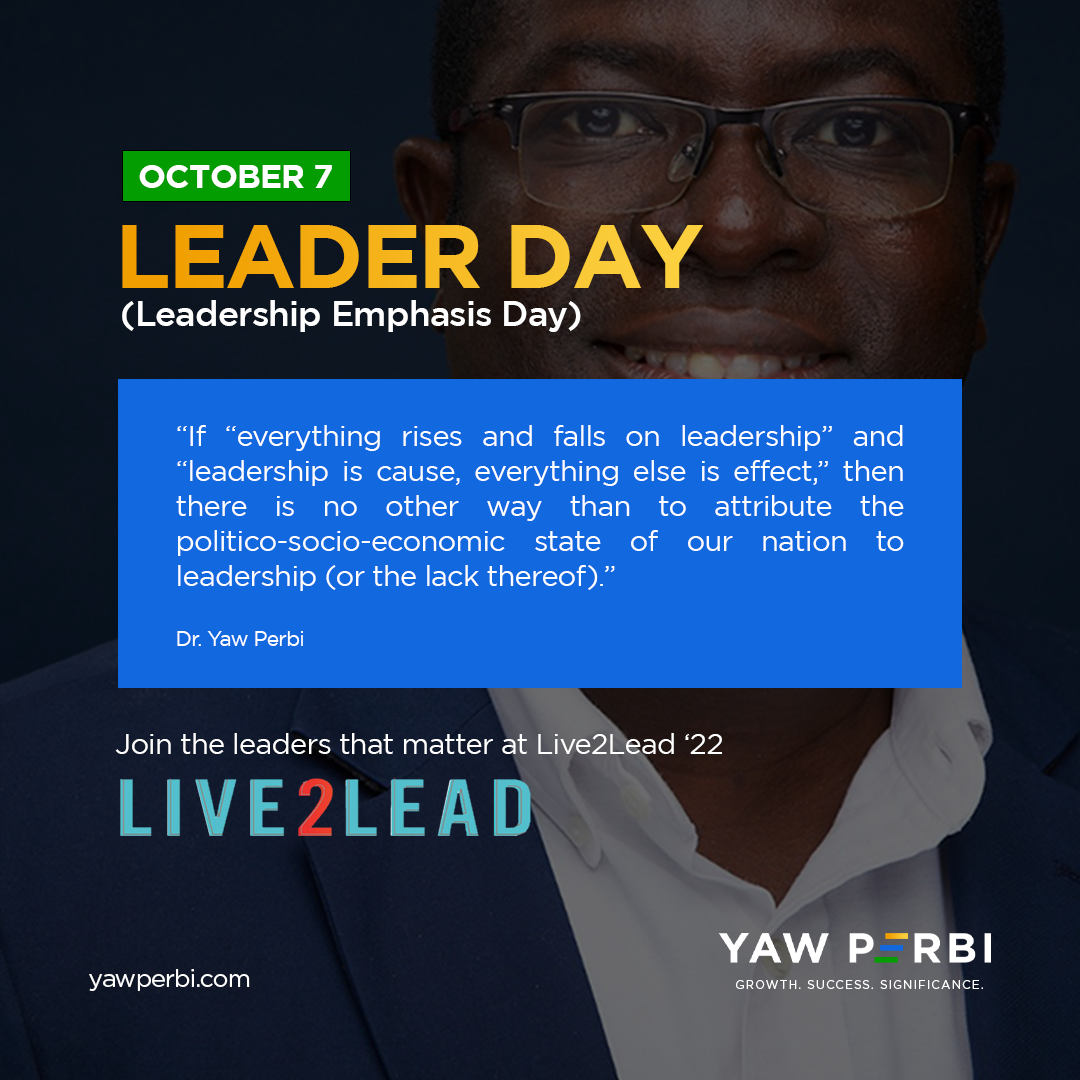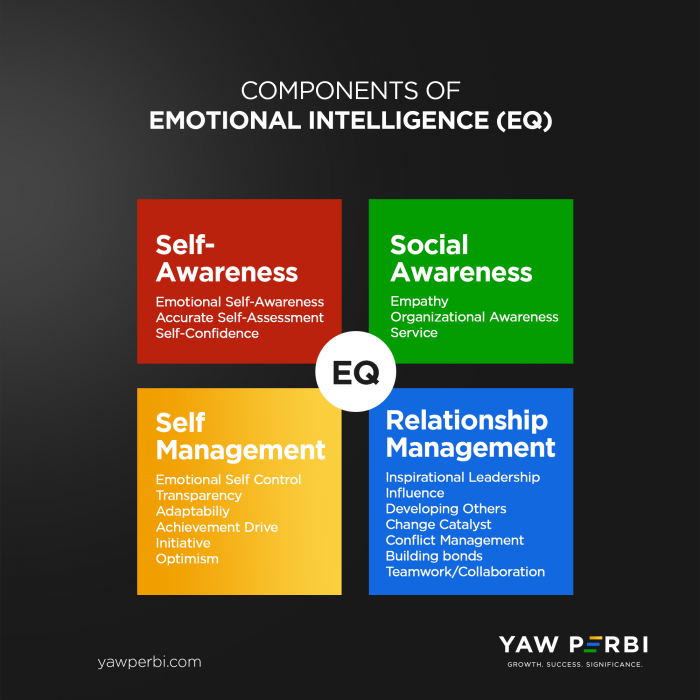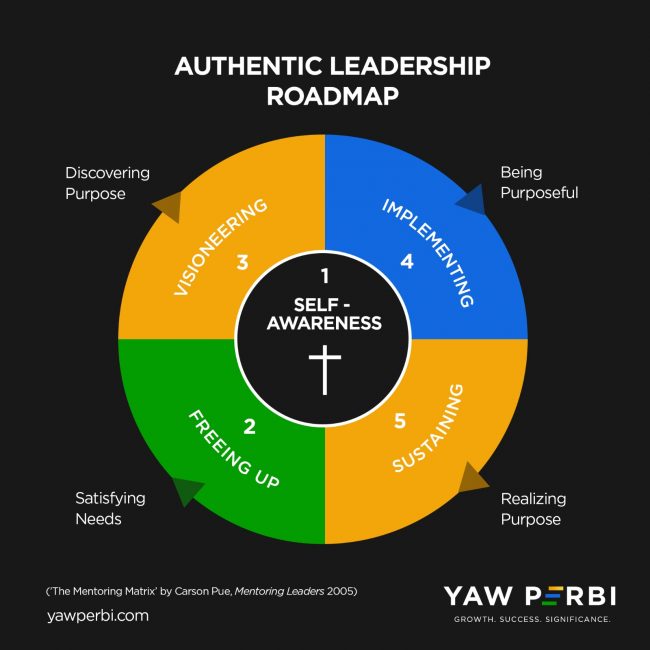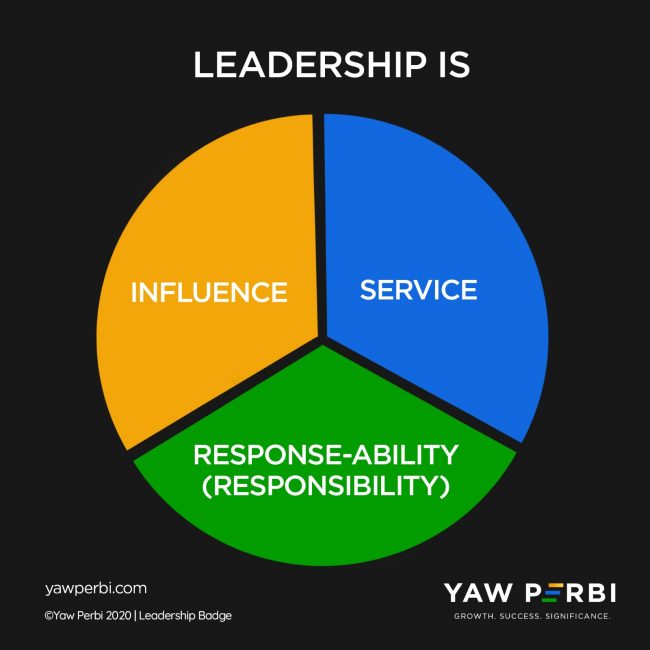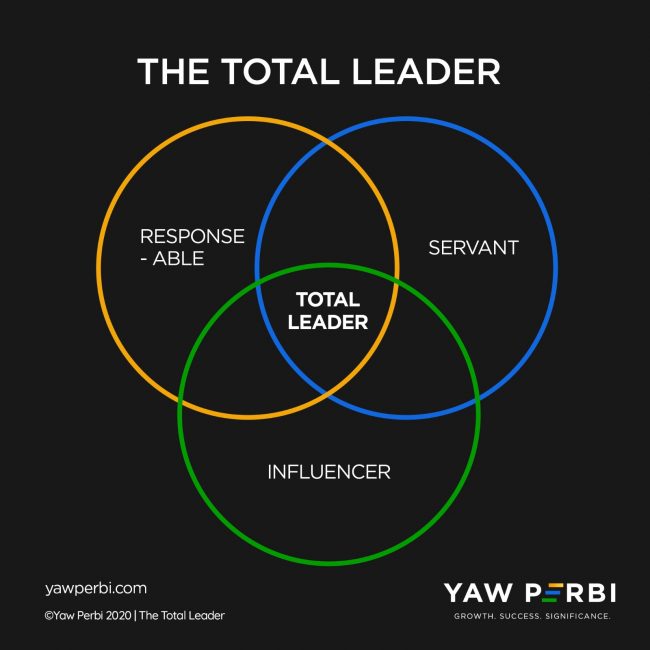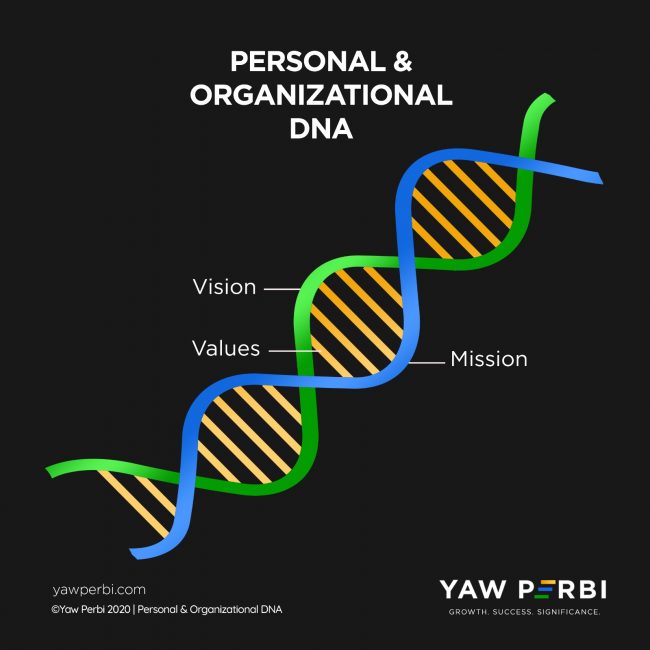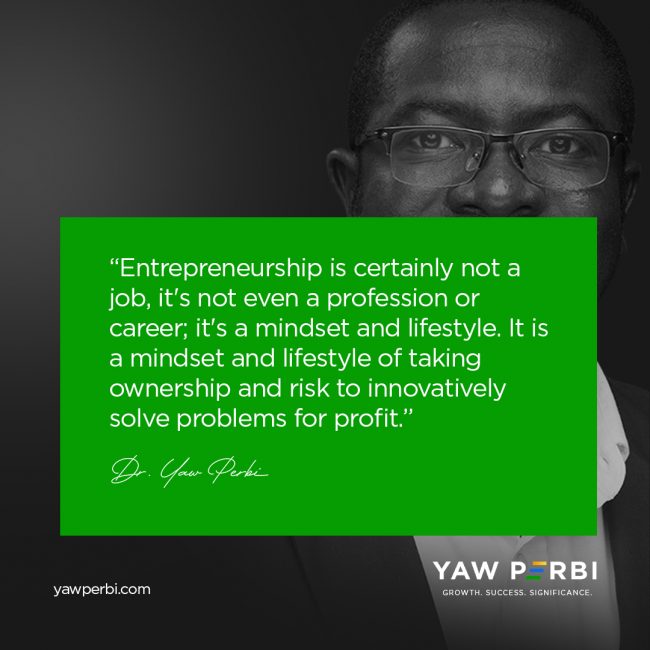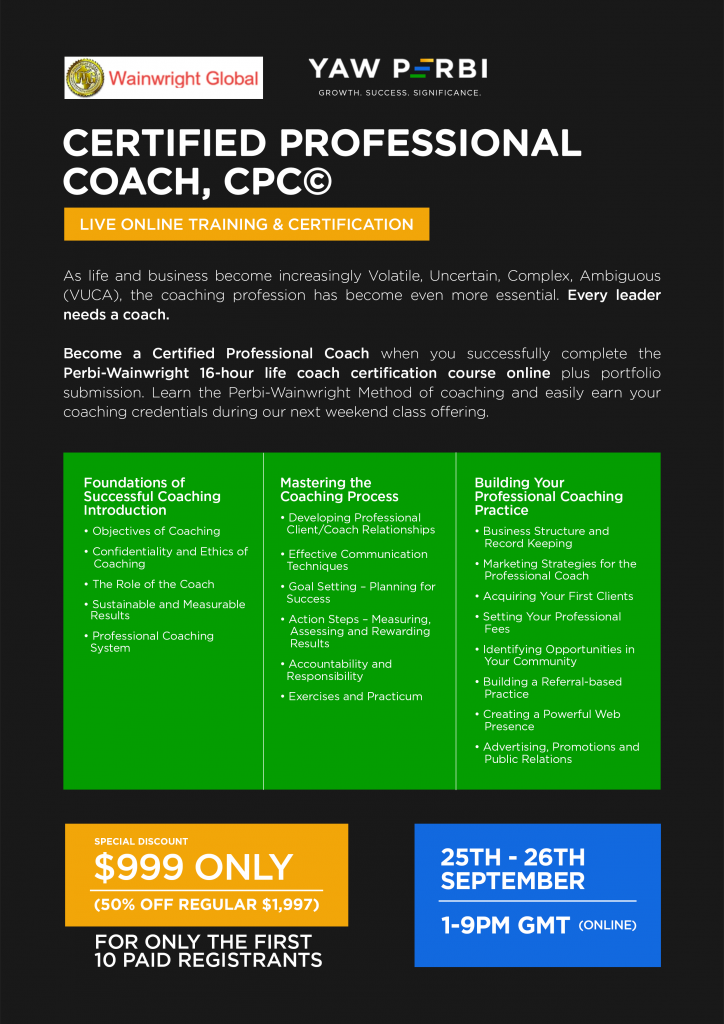
Meet Doris Kearns Goodwin, Presidential Historian Extraordinaire
Doris Helen Kearns Goodwin is an American biographer, historian, former sports journalist, and political commentator. In 1964 Kearns received a bachelor’s degree from Colby College, Waterville, Maine, and in 1968 she earned a doctorate in government from Harvard University, where she later taught government.
Goodwin won the 1995 Pulitzer Prize in history for her No Ordinary Time: Franklin and Eleanor Roosevelt: The Home Front in World War II (1994), and in 2005 she published Team of Rivals: The Political Genius of Abraham Lincoln, which focused on Lincoln’s management of his presidential cabinet. The book served as the primary source for Steven Spielberg’s biographical film Lincoln (2012). She later wrote The Bully Pulpit: Theodore Roosevelt, William Howard Taft, and the Golden Age of Journalism (2013) and Leadership in Turbulent Times (2018). In addition to her works of presidential scholarship, Goodwin wrote Wait till Next Year: A Memoir (1997), about growing up in the 1950s and her love for the Brooklyn Dodgers. She also served as a news analyst for NBC and as a consultant for Ken Burns’s documentary Baseball (1994).
TO LEARN OR NOT TO LEARN
It breaks my heart when I hear a famous statement like, “The only thing that we learn from history is that we learn nothing from history” (Georg Hegel, German philosopher). Yet of a truth, “Those who do not learn history are doomed to repeat it.” That quote is most likely writer and philosopher George Santayana’s, and its original form read, “Those who cannot remember the past are condemned to repeat it.” While leaders must not live the past, they certainly must leverage its lessons for today and tomorrow.
Consequently, in a fireside chat with John C. Maxwell at Live2Lead on October 7 this year, Doris will share key leadership insights gleaned from her decades of experience as a presidential historian, public speaker and Pulitzer-Prize winning author. The leadership lessons learned from some of the greatest leaders in our history provide timely clues on how to navigate the current condition of the leadership deficit we are experiencing today.
Come and up your personal, professional and leadership game at this year’s Live2Lead conference. Register now through this link. Nag your organization until they join this rising movement of learning leaders that will transform society by becoming a Patron of Live2Lead. A Patron company or individual is one that sends at least 10 leaders to Live2Lead. There’s no way we can have at least 100 such Patron organizations and companies in Ghana and not transform it, one centre of excellence at a time. Together we can change our country and continent for the better! Let’s do this! Register HERE, NOW.
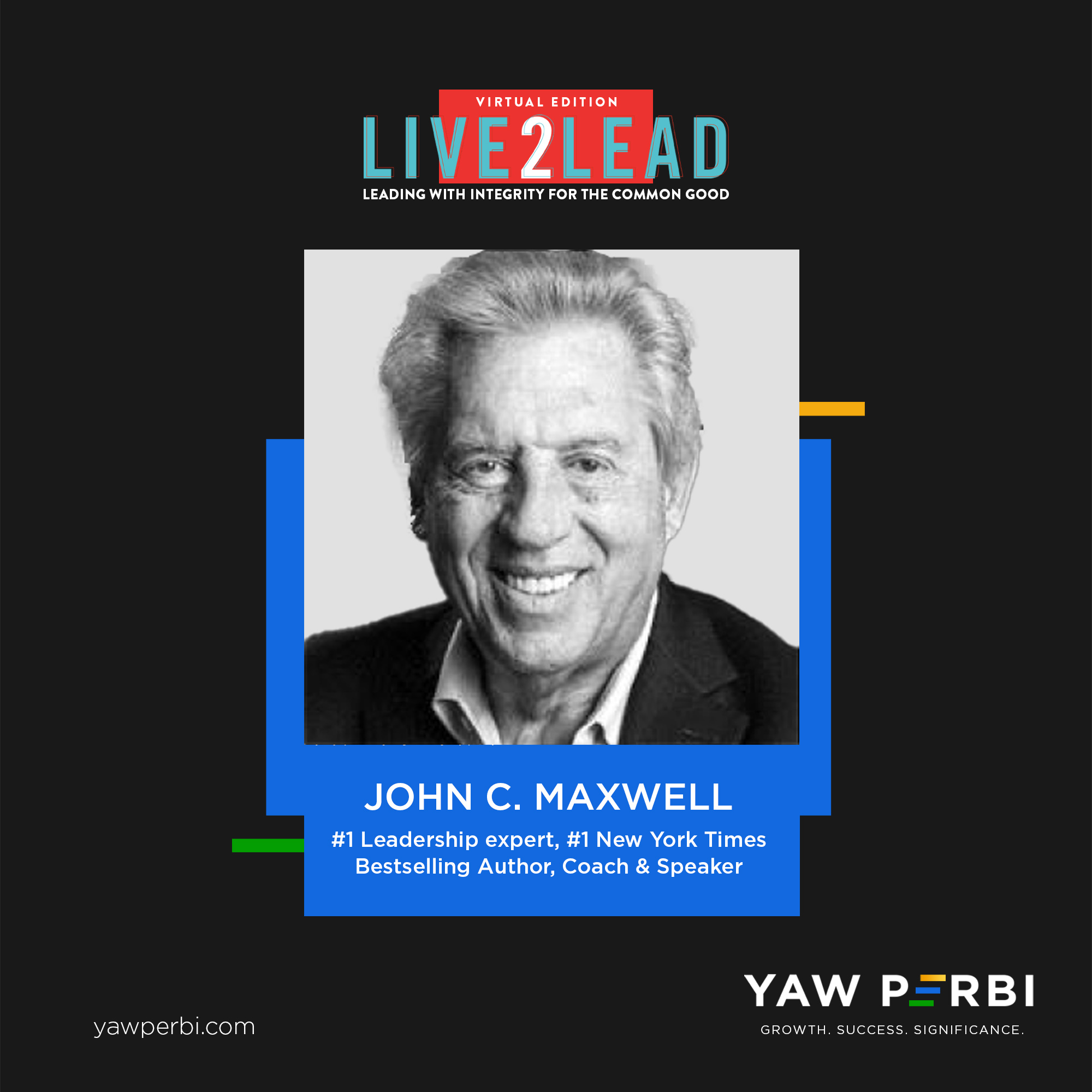
Meet John Maxwell, Mentor Emeritus
No single individual has influenced my leadership paradigm and praxis like Dr. John C. Maxwell. I started reading and understudying John in the late 1990s and have been teaching his materials ever since, both as a bonafide EQUIP trainer and a certified Maxwell coach/speaker/trainer on the John Maxwell Team (JMT).
Meet John Maxwell–my mentor emeritus–the #1 New York Times bestselling author, coach, and speaker who has sold more than 30 million books. John has been identified as the #1 leader in business by the American Management Association® and the world’s most influential leadership expert by Business Insider and Inc. magazines.
Dr. Maxwell has also received the Horatio Alger Award, as well as the Mother Teresa Prize for Global Peace and Leadership from the Luminary Leadership Network. His organizations—The John Maxwell Company, The John Maxwell Team, EQUIP, and the John Maxwell Leadership Foundation—have trained millions of leaders from every nation in the world.
The annual Live2Lead conference is John’s brainchild, and he always opens and closes, with other phenomenal faculty sandwiched in between. I have been privileged to host it on both sides of the Atlantic, in Montreal, Canada as well as Accra, Ghana.
LAWS OF COMMUNICATION AND LIMITS-BLOWING CONTENT
At Live2Lead this year, John C. Maxwell will be sharing new content from his upcoming book on the 16 Laws of Communication. Maxwell explains how to identify, grow, and apply your critical capacities. Once you’ve blow the “cap” of your capacities, you’ll find yourself more successful in your daily life.
We are absolutely convinced at YAW PERBI Executive Leadership Education that leadership (including communication) is taught; not just caught. Join John and the stellar faculty he’s put together for this year’s Live2Lead conference and up your leadership game. Register now through this link. Impress upon your organization to join the movement that will transform society by becoming a Patron of Live2Lead. A Patron company or individual is one that sends at least 10 leaders to Live2Lead. Together we can change our world for the better!
Register HERE, NOW.

Raise the Roof, Lift your Lid!
I just arrived at my room in Cape Town after three flights from Accra to Nairobi, Nairobi to Johannesburg and Jo’burg to Cape Town. A question on my mind as l flew here far above sea level, sometimes as high as 38,000 feet, has been, “How high is your leadership lid?”
THE FIRST OF THE IRREFUTABLE LAWS OF LEADERSHIP
Of course you know what a lid is, the cover of a container. How high your lid is determines the quality of the leadership that you provide for those you lead. I learnt this a long time ago, some 20-25 years ago from John Maxwell’s 21 Irrefutable Laws of Leadership. It was the very first of the principles of leadership he espoused in that bestseller and my life has never been the same since.
As John challenged me then from the written word—and many years later in-person—I must always endeavour to lift my leadership lid because no family, organization, church, community or country would ever grow past their leader. The leader is the lid over those (s)he leads. Sometimes when training leaders I ask, “are you a leader or ‘lidder’? because a leader is literally the lid on the progress and prosperity of their constituency. In a sense, every leader is a lidder; the question is “how high?”
IMAGINE THIS PRESIDENTIAL LID
You probably have heard me tell the story of a certain African president that a group of us, Maxwell certified leaders, were trying to connect in-person to John C. Maxwell for a national transformation process and programme. This president had never heard of John. In all probability, he hadn’t read any other contemporary leadership experts but hopefully he has digested at the very minimum some of the leadership classics like Plato’s, ‘The Republic’. It is a scary thought that this African nation—and by extension every family, organization, corporation, community, church etc. within her—would be constrained by the tightness of this head of state’s lid. I almost added, “through no fault of theirs,” but I guess they voted him into power.
HOW TO LIFT YOURS
While we educate a new generation that should be too enlightened to allow such tight lidders to lead African nations in the next decade, let me ask you, let’s get personal: how high is your lid? We forget, many of us (or we might even not know), that leadership is not just caught, it must be taught. And that’s why I love the opportunity, come October 07, for us all to be part of a life-altering, lid-lifting Live2Lead virtual experience with local faculty and global ones beaming all the way from Atlanta, Georgia.
We are gunning for 2,000 leaders—from emerging (youth) leaders, through leaders in the establishment (i.e. government/public sector leaders) to established leaders in the private sector, including executives from the corporate space. We will be taught in word and deed by powerful speakers and shakers like John C. Maxwell himself, two Patricks (Lencioni of the USA and Awuah of Ghana) and a Patricia (CEO of Vodafone, Ghana).
RAISE THE ROOF!
One of the most powerful discoveries in psychology over the last generation has been that people can learn and grow and change! So wherever your lid is today, if you learn to lead better you provide more room for those you lead. John will be the first to tell you that “your capacity determines your impact.”
Perhaps, some of the conflicts you are experiencing right now in your organization, church or wherever you lead is because your lid is too low and so people keep hitting it. And there is going to be continued tension and banging (conflict) till at some either you leave the stage or your people take their exit. As you have probably heard it said, people join organizations but they leave people (managers/leaders). It’s time to make room, lift your lid, raise the roof!
I have been part of things l left because the lid was too low. It just wasn’t life giving and l know people have also left my leadership when my lid was low because it was just too tight. Learn to lead. Each one of us can learn to lead better. Blow off the lid so that all of a sudden the people under your leadership feel this space and freedom because you lifted your lid and now they can breathe and create and innovate and… live again.
Join us at Live2Lead Ghana 2022, on October 7, and let’s all learn to lead better so that the people following our leadership can live better. If leading is your purpose on earth—that you live2lead—then you might as well as learn2lead, and do it well. As Donewell Insurance puts it, “If it must be done, it must be done well.” If we must lead, then we must lead well. Let’s blow off some lids and see our constituents blessed beyond measure, growing great and strong.
Right outside my hotel room window is the breathtaking view of the majestic, towering Table Mountain at 3,500 feet above sea level with no real ‘peak’ per se. No lid! So in the meantime, while you contemplate your lid, I will enjoy Cape Town on your behalf.
Post Script
Register and join LivetoLead here.
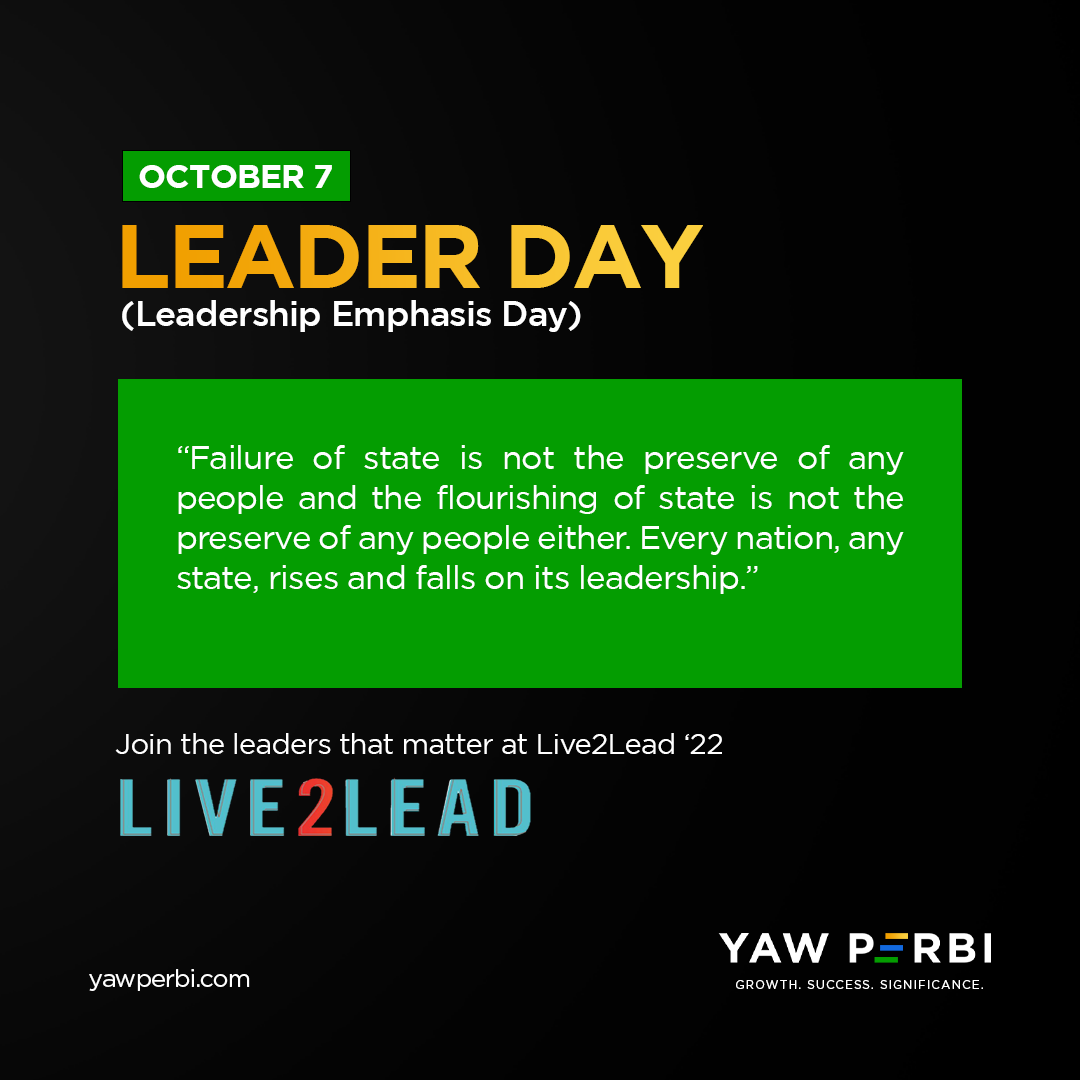
Of Principles, Principals & Principalities
This is a true story: A few years ago, a handful of us John Maxwell-certified coaches and trainers from Africa were trying our possible best to get John, the world-famous leadership expert, to visit a particular African country and engage their president. A good number of Maxwell-certified leaders have been travelling with John to specific developing countries to engage them in a bottom-up transformation process that have done these nations some real good and we hoped same for this African nation with great potential. But John doesn’t come cheap. In fact, one of us was serious enough about this that he cashed in part of his 401k (retirement savings in the U.S.) to make this trip possible. It was such a struggle to gain access to the president, like pulling teeth! Eventually we did. To my ‘shock and awe’ (just remembering U.S. President Bush Jnr.), this African president did not even know of John Maxwell! That is when I knew the country wouldn’t do well. And I was right.
LEADERSHIP IS THE TIDE
Over the last few years, especially with the Trump presidency and with the advent of social media proliferation, many of us have seen parts of the United States that we have never seen before. Horrible parts and horrific things—whether it is the wicked knee of a policeman on George Floyd’s neck or violent street protests or the infamous January 6 ‘insurrection’ or whatever it is. We had all this exposure to things we could not hitherto have imagined occurring in the ‘greatest nation in the world.’ At the peak of these happenings, during the Coronavirus pandemic, I frantically tried (see January 2021 article) to get some of my American friends to appreciate that Africans are no less human or merely more stupid than they are, and that if there is a difference between their economic status and my motherland’s it was just because, “everything rises and falls on leadership.” Leadership is the tide the raises all the other boats in a society (or otherwise). Most of them, I perceived, didn’t still quite get me.
AFRICA IS NOT THE PROBLEM
Just like we’ve seen in the last few years in America, we’ve also seen in several countries in Europe how “leadership is cause; everything else is effect.” I’ve lost count of how many Prime Ministers Britain has had in the last little while, and we all witnessed with horror the leadership (or the lack thereof) of the last one with the Russian first name. Africa is not the problem, leadership is. Failure of state is not the sole preserve of any nation neither is the flourishing of state the preserve of any nation. Every nation, any nation, rises and falls on its leadership.
“WE THREE KINGS”
These three kings are at work in nation building: Principles, Principals and Principalities. If you like, these actors are Laws, Leaders and Luciferites. Principles are neutral, Principals are supposed to be working for their people while Principalities are against. There are principles that touch on every aspect of life, including leadership. When these principles or laws–which are timeless, universal truths–are lived out, nations do well, families flourish, churches and organizations prosper. When they are broken we don’t.
It is easier to appreciate the physical and chemical principles because we can see and feel and touch them and their consequences. The Law of Gravity is the commonest example of a principle of Physics (physical law). There are leadership principles as well. Many of these are intangible in their operation but produce very tangible effects reflected in socioeconomic and other indices. Nations that live by principles, these consequential laws of the universe that make this world run properly, prosper and nations that do not live by principles don’t. The nations whose principals (leaders) live by these principles prosper; those that don’t do not suffer. It bears repeating that this applies to families, communities, churches, organizations… you name it.
WHERE DEMONS COME IN
Of course, those of us who believe in spiritual things know that over every nation and territory there are also what we call Principalities (Lucifer’s forces). These ‘Luciferites’ (I call them), are spirits that have territorial control that want to oppress nations and not let them come to their full manifestation. Why, you may ask? Out of envy of humans and out of spite for their Creator. But guess what? If you have principals (leaders) who live by principles (laws), including spiritual principles on how to deal with these powers, those nations, those families, communities, churches, organizations and countries of such leaders would bloom.
STOP THE BLAME GAME, NOW
Africans! let’s stop blaming how socioeconomically bereft we are on Principalities. It is our lack of following Principles—all of us—and particularly the lack of our principals leading in a principle-based manner as they should that has landed us where we are. We have an opportunity on October 7, all of us, to learn more of these principles as principals, whether we are executives in companies, pastors of churches, student leaders, public sector actors or whatever. We must all learn to lead better. When the leader gets better everything everyone else gets better.
It’s time to take on the principalities (Lucifer’s powers) that are oppressing and not making us prosper as nations and communities and it would come from the principals (leaders) who would live by the principles (laws) of leadership and lead the rest of us to do same. Don’t blame the principalities—and you can’t blame the principles either—it all lies on the principals. Principles are fundamental laws that cannot be changed and must be lived by to prosper. Principalities are spiritual powers that can be challenged to let things “be on earth as it is in heaven.” Neither principles nor principalities are respecter of persons, whether principal or peasant. Nations with great principals (leaders) abide by principles (laws) and defy spiritual principalities (Luciferites) to make their nations prosper. How laudable is your leadership?
Remember the nation whose principal-in-chief was clueless about leadership principles, at least as taught by Maxwell? I feel sorry for his people as I see and hear of their plight each day, worsened by the Coronavirus invasion of our planet. It’s not the devil; it’s our leaders. As one medical colleague pursuing Paediatric Pulmonology in South Africa poignantly commented on my PEP Talk on YouTube about this matter, “Once our Principals follow Principles and we the led are inspired, we will be too busy prospering to blame Principalities.” Enough said. Are our principals hearing?
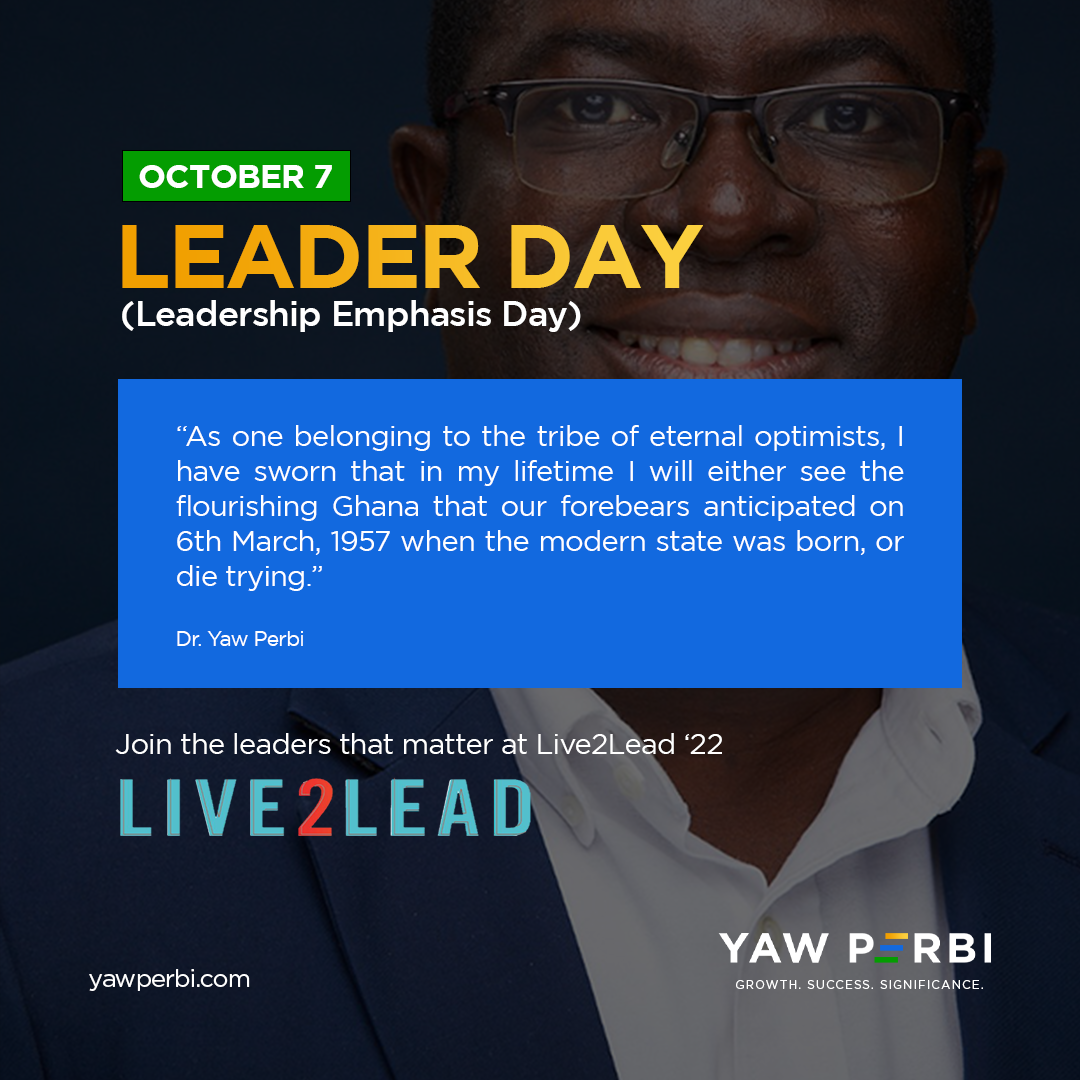
Leader Day, October Day
The world is not in a good place. Leadership is the cause. And when it comes to Ghana’s situation in particular, I have personally been shocked at the number of C-level leaders I have interacted with that have either completely lost hope in the future of the country or nearly have. “How did we get here???” one CEO of a major bank asked me via text (yes, with three question marks).
If “everything rises and falls on leadership” and “leadership is cause, everything else is effect,” then there is no other way than to attribute the politico-socio-economic state of our nation to leadership (or the lack thereof). In the same way, if there is any one thing that will elevate the conversation, and the nation with it, it is leadership.
DO OR DIE TRYING
As one belonging to the tribe of eternal optimists, I have sworn that in my lifetime I will either see the flourishing Ghana that our forebears anticipated on 6th March, 1957 when the modern state was born, or die trying. When the nascent nation was named ‘Ghana,’ our great grandparents were hopeful it would reflect the prosperity of the old Ghana empire, hence our new name (from Gold Coast). Oh, it bears repeating: our tribe of eternal optimists will see to a prosperous Ghana in our lifetime or die trying.
“I HAVE A DREAM, I HAVE A DREAM…”
Every true leader has a dream they passionately pursue with their people. I realize there is a day dedicated to almost every cause under the sun and pretty much each of the Sustainable Development Goals (SDGs)—women’s day, water day, literacy day, friendship day, founders day … even toilet day. Yet the one thing that causes each of these matters to rise or fall has no such day dedicated to it to elevate and emphasize it. Even then, is a day enough? Surely not; but it is a good catalyst for the remaining three hundred and sixty four (or five) days.
My fellow Maxwell-trained and certified collaborators in Ghana and I have a dream that ultimately the first Friday of October each year will become universally known as LEADER DAY. There is nothing special about the first Friday in October per se except that consistently for about a decade now, our mentor and leadership expert, John C. Maxwell, has been gathering some of the best leadership minds and hearts on the planet to speak to the issue, and we might as well leverage the opportunity rather than reinvent the wheel. Live2Lead is the name of that event. The name says it all, that’s our purpose on earth: We live to lead.
Gwen Addo, the pulchritudinous CEO of the Hair Centre and speaker at Live2Lead Ghana ‘22 affirms this vision: “I also pray your dream comes true and October 7 becomes a “leadership day” or perhaps October becomes a “leadership month.”” She continues, “leadership is close to my heart … and why not dream it bigger than just a day.”
You and I know the dearth of leadership in our country. We, Maxwell certified trainers who are Ghanaian, are aiming to get 2,000 leaders at all levels to benefit from the LIVE simulcast from Atlanta. We will organize local content for our context first, sandwiching the global feed. You would want to be with Patrick Awuah (Founder & CEO, Ashesi University), Patricia Obo-Nai (CEO, Vodafone), Uncle Ebo Whyte (CEO, Roverman Productions), Gwen Gyimah Addo (CEO, The Hair Senta), Kathleen Addo (Chairperson, National Council for Civic Education) and Kwamina Asomaning (CEO, Stanbic Bank). The core issue on the table this time, or shall I say by the fireside, is “Leading with Integrity & Inspiring Hope, for the Common Good.”
STRATEGY
On October 7, we shall convene 2,000 Ghanaian leaders online. At least half of them will be from 100 companies, institutions and organizations which would send 10 of their leaders to Live2Lead as their investment in themselves as well as boldly staking their claim in the prosperity of Ghana by raising the leadership lid in the country, one company at a time. All these companies will be listed as patrons in the event handbook, website and social media (in alphabetical order).
The other half will be made up of executive leaders from the private sector, the establishment leaders (public service) and emerging leaders from our schools and universities, representing the next generation. Companies, institutions and organizations which want to go beyond patron status will be given opportunity to sponsor the establishment and emerging leaders in exchange for significant air time and eyeballs.
This 2,000 is only for starters; we shall double in 2023; and double again and again till at least 2% of all leaders in Ghana are connected to this Live2Lead tribe of learners who lead and leaders who learn. That is the exact critical mass needed to see a self-propagating movement of leaders worth following in Ghana: 2% of the leader population.
CONCLUSION
The feedback from the ground as I have gone around is damning. Ruinous to the extent that although the theme we initially chose for our local content is ‘Leading with Integrity for the Common Good,’ we’ve had to come up with a conjoint theme of HOPE. Our people need hope. Leaders are brokers of hope, thus when they themselves are broken to the extent that they have no hope, what shall the rest of the people do?
Arise Ghanaian leaders!, established and emerging ones alike. We are better than this. Yet perhaps we are expecting leadership behaviours, values and attitudes that we haven’t first trained into people. Since we Live 2 Lead (that’s our purpose) let’s then Live 2 Learn (that’s the process) so we can all lead better and all make our nation great and strong. When the leader gets better, everyone and everything else does too. So let’s all show up!
One day in October, for starters. Just one day but who knows? Perhaps ‘October Day’ will in my grandchildren’s day be as well-known as ‘May Day’ is today. And for even better reasons, leadership-wise.
PS.
An event is not enough for sustained transformation thus there are leadership development and training pathways that will later be shared as a follow-up process between October 7 and the next Leader Day a year hence.
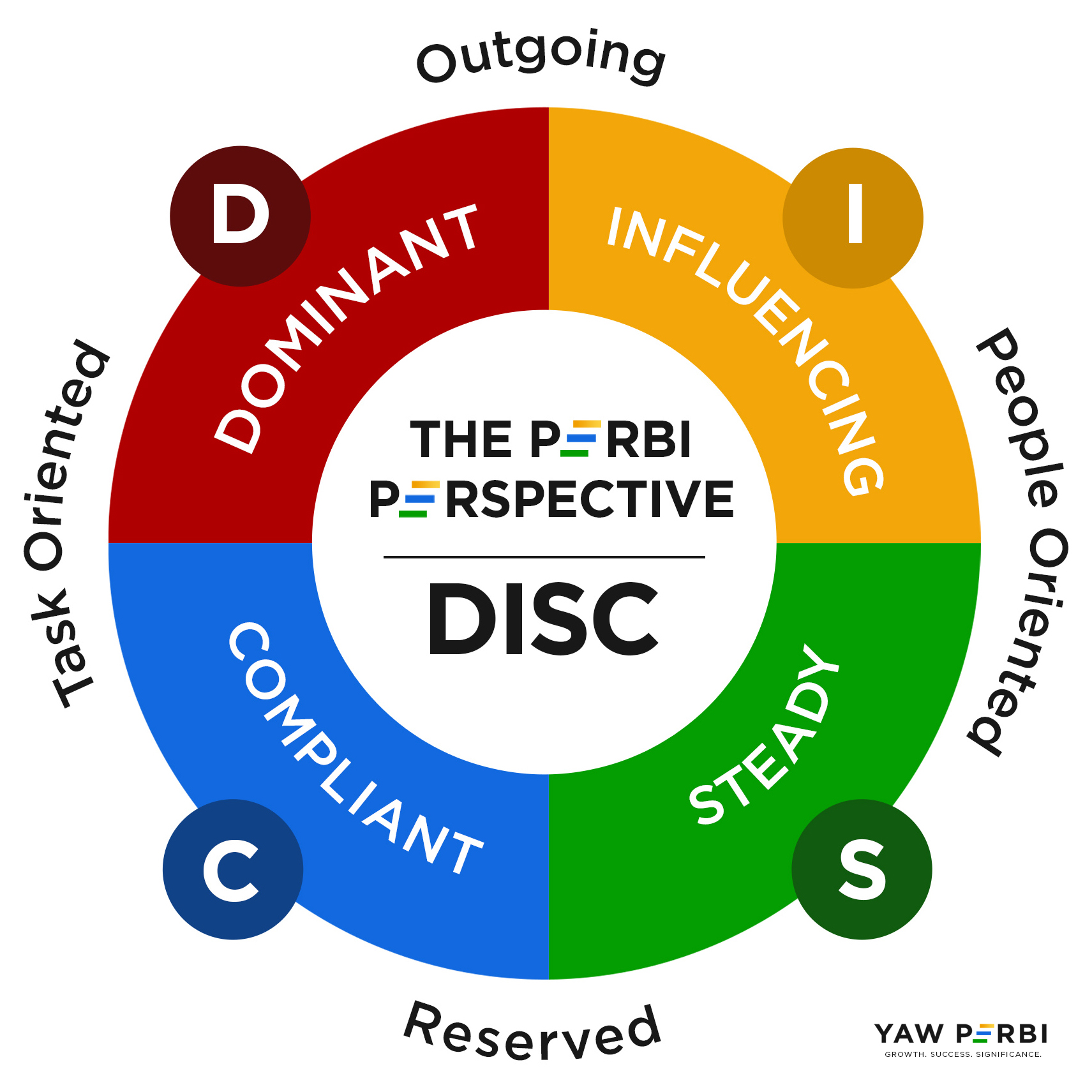
Three Major Benefits of the DISC For You & Your Organization | Your HR Owes You This Assessment
If my DISC assessment results had turned out different, I would not be working as the COO of YAW PERBI Executive Education. When I applied, my employer knew the personality style for the position. Unknown to me, the last interview was to take the DISC assessment. I took it and the results were positive; Peacemaker SC!
I got the job.
Perhaps you’ve encountered different personality assessments out there. But the DISC is the most widely used by individuals and companies around the world.
The DISC is an acronym for Dominant|Direct, Influencing|Inspiring, Steady|Stable and Compliant|Correct. It assesses a person’s personality style as regards their strengths, weaknesses, dislikes, fears and motivations. It also reveals one’s level of strengths of influencing, directing, processing, detailing, creating, persisting and relating in leadership.
Sometimes conflicts arise in the workplace that affect productivity and lead to high employee turnover not because people are bad per se but simply because they don’t understand each other.
Here is how you and your HR department can benefit from DISC assessments:
Benefit #1: Stronger Self-Awareness
The DISC allows you to know your personality style – your strengths and weaknesses, what motivates or discourages you, likes and dislikes, and whether you’re energized or dampened by social interactions. All this information is key in your personal growth and can help determine focus areas for further training and development.
Rather than waste time trying to be like someone else, you should focus on maximizing your strengths and becoming the best version of yourself. And rather than struggle to become strong in your weak areas, you can partner, delegate or hire someone who is strong in that area.
The more you become self-aware, the more you appreciate the differences in others and you’ll begin to treat them as their personality demands.
Benefit #2: Clearer Communication
How we communicate can build or destroy our relationships. The DISC introduces you to the different ways different personality styles communicate and how they process information.
For instance, the Influencing personality style dislikes complex tasks, pays less attention to details and has a low attention span. If you give them a 100-page report to review in two days, you’ll have crucified them. But give the same report to a Compliant personality style who is detailed, systematic and analytical, and it will be a piece of cake.
When stakeholders in an organization appreciate the different ways people communicate according to their personality style, they’ll cooperate better, resolve conflicts faster and reach consensus amicably.
Benefit #3: Tighter Teams
The DISC is useful right from the recruitment stage to determine who has the personality style for the position.
For instance, if a company wants to hire a salesperson who has to be out of the office most of the time to get clients, a Compliant personality type will expire fast! Why? Because they’re introverted and will prefer to sit behind the desk and do detailed tasks like accounts. But an Influencing personality style who is talkative, friendly and persuasive will be thrilled to meet new people and close deals.
It’s also a fact that we’re motivated differently. A Dominant style is motivated by new challenges, authority to take risks and freedom from routine. On the other hand, a Compliant style is motivated by limited social interactions, detailed tasks and standards of high quality.
An HR personnel who understands the personality styles and behaviours of employees will motivate them in ways that speak most to them and create an ideal environment where each style can flourish.
If your HR department is not in a position to purchase a DISC assessment for you, this is an investment in yourself you need to consider. Knowing your personality style and being able to assess the personality of others will enlarge your perspective of self and others, improve your communication and empower you to become a better team player. Unexpected doors open for those who know how to harness the greatest asset in an organization – people.
A DISC is also a perfect gift to give a loved one. Not only will they become self-aware but you’ll know them better yourself too and love them according to the needs of their personality style.
__________________________
If you have any inquiries about the DISC, do not hesitate to get in touch with us via info@yawperbi.com. I am one of the Accredited DISC coaches and Certified Behavioural Consultants with YAW PERBI at your service.
To purchase the DISC assessment Click HERE.
To become an Accredited DISC Coach and Certified Behavioural Consultant Click Here.
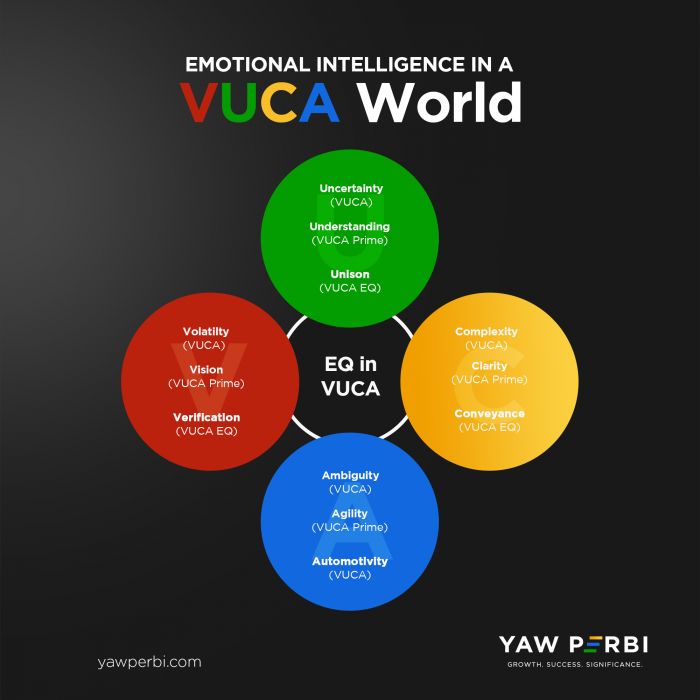
SO YOU THINK YOU CAN LEAD WITHOUT EQ IN A VUCA WORLD?
As one of the Pan African Cohort facilitators of BCA Leadership, I just got off a scintillating Zoom call with amazing African C-level leaders from across the continent—East Africa (like Kenya and Uganda), West Africa (I recall Nigeria, Sierra Leone and Ghana), North Africa (Egypt) and Southern Africa (Malawi, South Africa). We talked about Emotional Intelligence and the whole idea of VUCA. The goal of this blog is to summarize the essentials of the topic, which most participants described as ‘intriguing’: “So you think you can lead effectively without EQ in a VUCA world?” Really, this is a rhetorical question because no one in their right senses would say, “Yes, I can lead effectively without Emotional Intelligence (EQ)” in the first place, let alone in a world that’s described as VUCA.
WHAT ON EARTH IS VUCA?
VUCA is a term that came from the military space, especially at the end of the cold world war when without the two clear polarizing forces the whole world was described as Volatile, Uncertain, Complex, and Ambiguous. Guess what? If the end of the last century was said to be VUCA then imagine just how much more VUCA it is now. Look at the volatility of the world today, look at the speed of transformation, the dizzying digital economy. Consider the uncertainty with COVID-19 and this post-pandemic world. Is it even a post-pandemic or rather para-pandemic world as in some places it seems over and in others, COVID is still raging? Look at the complexity of the world. How could a microscopic virus emerge in a small place in some corner of the world called Wuhan, China, and the whole world gets grabbed into this? Some things are just ambiguous right now. It’s a VUCA world. There wouldn’t be enough space to write out all the feelings these VUCA times have generated in people, especially anxiety.
HOW ABOUT EQ?
Even before the VUCAness of the world, Emotional Intelligence had been identified as the key thing for succeeding in leadership. It is archaic 20th century thinking that IQ (intelligence quotient) makes a good leader for a total leader not only has IQ, in terms of book smarts or cognitive intelligence, but also Emotional Intelligence (EI/EQ) in terms of being intelligent about feelings and Global Intelligence (GQ). Humans like to think we are rational people but at the end of the day we are emotional beings. The term was first coined in 1990 by researchers John Mayer and Peter Salovey, but was later popularized by psychologist Daniel Goleman five years later.
We now know that 80-90% of success in Executive Leadership depends on Emotional Intelligence and not cognitive intelligence. Don’t get me wrong, I am not dumb. I am a medical doctor for crying out loud. Intelligence is important but guess what? When it comes to Executive Leadership, IQ only gets you into the door, it takes EQ to play the game. And win. After about 128, IQ doesn’t matter anymore! Given the same level of IQ, technical skills, and competence, it’s EQ that would make all the difference in how much one succeeds (or not).
Emotional intelligence, according to Psychology Today, is “the ability to identify and manage one’s own emotions, as well as the emotions of others.” It is thus made up of the following four blocks:
BUT THERE’S PROBLEM
So being the amazing leaders we are, we figured out we cannot just sit idly twiddling our thumbs and watch VUCA happen without responding. In 2007, one Robert Johansen (a distinguished fellow at the Institute for the Future), came up with a behavioral leadership model he called VUCA Prime to counteract each of the four elements of VUCA with a specific positive response which starts with the same four letters. VUCA Prime then is to have Vision over Volatility, to overcome Uncertainty let’s have Understanding, then Clarity over Complexity and to overcome Ambiguity let there be Agility.
Well, I have been studying this since the pandemic began and was thinking recently how good VUCA Prime is but how so very cognitive it is! Why is VUCA Prime so cognitive and does not take enough emotions into cognizance especially when we know 90% of success will depend on a leader’s emotional awareness (of self and others) and responses?
WHAT IS VUCA EQ THEN?
Consequently, I have designed something called VUCA EQ to provide a more comprehensive and potent leadership response to VUCA beyond the cognitive, one that significantly takes emotional intelligence into consideration. Like VUCA Prime, each of the VUCA EQ responses also begins with the same four letters.
Firstly, V is Verification: we need to be able to decipher what our emotions are and label them correctly. Then we need to be able to do the same for others as well so we can respond rather than just react, and we can manage our emotions and that of others instead of just trying to control them. The world of command and control is gone!
Secondly, instead of Uncertainty and just responding with the cognitive Understanding that VUCA Prime proposes, we rather respond in Unison. What I mean by Unison is to respond with our three brains. You have the cognitive brain but you also have your emotional brain called the limbic system. EQ is not just a ‘heart’ kind of thing, no! Emotional Intelligence has to do with the brain too. Or even more annoying, called ‘soft skills.’ EQ produces hard results on the balance sheet and cashflow statements! There is the Cognitive brain, Emotional brain, and Instinctive brain and VUCA EQ is about responding with all three in unison.
For Complexity, not only overcome with clarity but with Conveyance. Powerfully transmit emotional then logical information and carry across values and perspectives, considering emotional data and communicating emotions first. Remember to start with emotional data when decision-making and communicating eg. I feel vexxed about this decision and I’m aware most people in the company feel anxious…. Connect with emotions and convey them in response to complexity.
Then finally, for Ambiguity, not only thrive with agility but by Automotivity. In other words, learn to move people’s emotions or move people emotionally. Automotivity means containing within itself the means of propulsion or movement. Mobilize people in such consonance and resonance with what they want (motives) and how they want (motivations) that they move in a self-propelling manner. After all, why do you suppose feelings are called e-motions? Feelings move us, they move the world. We may not like to acknowledge it but they do. How do you learn to know people’s motives and their motivations so that you can ride on that to send them (better still, travel with them) to a place where they ought to go?
CONCLUSION
Leadership is in the transportation business. We move people from here to there and without the power of Emotional Intelligence to move people (think e-motions) towards a shared, noble purpose, we are going nowhere ourselves in the first place and taking no one with us for that matter. Don’t you ever think you can successfully lead, especially in this VUCA world, without Emotional Intelligence.
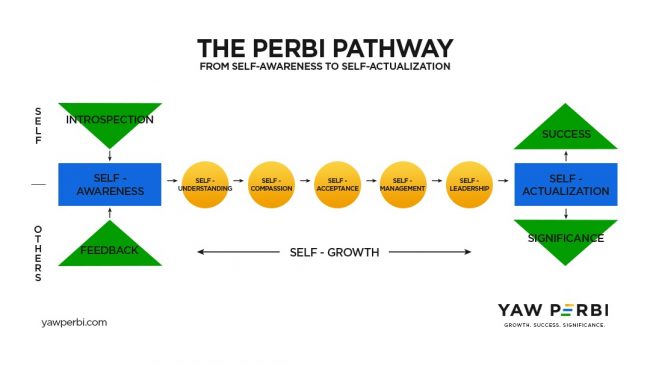
Is ‘Self-Leadership’ Really a Thing?
When the CEO of TNYOU, short for The New YOU, a leading health and wellness movement asked me to speak to a group of their Queens (members) on ‘self leadership’ it felt odd on three levels. I still showed up anyway, grateful for the invite, because Sena told me there was going to be a lot of women there so how could I turn down the invitation? I am very heterosexual!
Firstly, it felt odd because not everyone believes in the concept of ‘self leadership.’ During my graduate studies in leadership I came across leadership authorities in academia like Northouse who believe ‘self leadership’ is an oxymoron because leadership by definition per se is about other people, not one’s person.
The second reason it felt odd was that it seemed to me I was preaching to the choir. These were all women who had taken charge of their lives, self-leadership, to get their health and happiness on track. What more was there to tell them?
My third and final reason was personal: I suspect Sena Yeboah had asked me to speak on self-leadership because not only am I a leadership authority (I’m actually even undergoing doctoral studies in global leadership at the moment) but I’ve also been big on self leadership in my personal life for years and very successful in most areas (discipline of staying in medical school or to author and publish 20 books or choosing to abstain from sex before and outside of marriage or family planning for seven children etc.). The irony is that the one area I have failed miserably at in exhibiting strong self-leadership has been my personal health, particularly since the pandemic. I was very active before Covid-19 hit, sometimes doing nearly 70 flights per year and all but now both the pandemic viral curve and the curve of my abdomen had risen in tandem. What an embarrassment to stand before women who had exhibited self-leadership to look trim and prim!
I’m glad that in the spirit of authentic leadership I confessed my sin and shared my repentance story that over the previous four weeks I had now taken self-leadership regarding my health and had been working with a physical trainer/coach actually recommended to me by Sena since there’s no TNYOUMen, yet.
SO WHAT IS SELF-LEADERSHIP?
As far as I know, Charles Manz was the first to use the term ‘Self-leadership’ way back in 1983 and defined it as “a comprehensive self-influence perspective that concerns leading oneself.” The father of modern management, Peter Drucker, wades in (2010) to say that being a self-leader is to serve as chief, captain, or CEO of one’s own life. Brian Tracy talks about setting goals and taking full responsibility for that goal. The concept of self-leadership, also known as personal mastery, can be found in the writings of philosophers and poets, both Eastern and Western:
“Mastering others is strength. Mastering yourself is true power.” – Lao Tzu (born 571 BC)
“I am the master of my fate, I am the captain of my soul.” – William Ernest Henley (1849–1903)
HOW SELF-LEADERSHIP CAN BE EXPLAINED
How differently would you live your life if you saw yourself as a company and run your life that way—Me Inc.? What are some of the things your company/organizational leaders do to make it successful? A leader is a response-able PERSON who serves and influences PEOPLE to achieve a shared, noble PURPOSE. Person-People-Purpose. Because of middle P, there is a school of thought that there is nothing like self-leadership, an oxymoron, but I beg to differ: If leadership is about responsibility, serving and influencing PEOPLE, then how about starting with the FIRST PERSON, which is yourself/myself?
You should know by now that the hardest person to lead is yourself/myself! Self-leadership then is being response-able, serving and influencing oneself (one’s PERSON) to achieve a noble purpose. This purpose could be an overall life purpose or in a specific area of your life: professional, financial, health/wellness, intellectual/academic, social/relationships, spiritual. Self-leadership is to:
*Be response-able for your life. Take charge/you are in-charge. I cannot keep letting my body do whatever it wants—from my mouth to the rod in between my legs.
*Influence yourself. Influence your thinking by what you choose to read or watch, including on social media. Recently I decided to influence myself towards finishing up a book and sending it off to the publishers by promising myself my favourite Chinese food at my favourite Chinese restaurant in Accra on the day I meet that goal!
*Service yourself. Everyone needs a daily growth time; everyone, everyday. Serving yourself may sound selfish but do not confuse self-care with selfish. Even to obey the great commandant to “love your neighbor as yourself,” you can only love a neighbour to the extent that you love yourself. A classic illustration of this truism might be how on an airline the safety instruction is that in the event of a loss in cabin pressure, when the oxygen masks drop down put one on your own face first before attempting to help any others. It might seem very noble to try and save that little child next to you or the old lady already collapsing across the aisle but without taking care of you first, we might end up with two casualties instead of one: you the attempted helper and the one you were attempting to save.
TEAMS, DNA & EVERYTHING LEADERSHIP
Take a good look at every responsibility of company leadership and find an application or parallel with your own life. One of your first acts of leadership is to recruit your leadership team. Gather the right community of people around you. Even better still have TEAMS—Together Everyone Achieves Most Success. You need mentors above (coaches, teachers, counsellors, spiritual directors etc.), mates at par and mentees who look up to you to form a stable tripod. One of my friends who works with a huge European bank has actually set up a personal board of directors he meets with quarterly–and it’s working wonders for him as we meet with him quarterly (I’m on this board). At least have an accountability partner of Me Inc.
As an executive coach, I still haven’t gotten over the shock every time I meet with a top leader of a company with a compelling mission statement yet this leader hasn’t clearly spelt out and written down their own vision, mission and values! Come on! Take self-leadership now–spend some quality time (even go on a retreat) to determine your life’s vision, mission, values and some goals and strategies towards that end. That is leadership!
SELF-LEADERSHIP NOT THE SAME AS SELF-MANAGEMENT
Leadership and management aren’t one and the same. It stands to reason then that self-leadership should be distinguished from self-management (as seen in the Perbi Pathway from Self-Awareness to Self-Actualization above). While all the differences isn’t the focus of this article, suffice it to say that self-management is doing the right things for your flourishing while self-leadership is determining what the right things are in the first place. The difference between leadership and management is starkest when once needs to make a major life change. Self-leadership is able to chart and change course; self-management is able to stay the course (consistency).
Self-management would be the planning, budgeting, organizing and staffing, monitoring results, coordination… everything systems and processes to create a stable, productive environment with consistent life results. Self-leadership, on the other hand, would be building a strong personal foundation, defining DNA (vision, mission, values), mapping strategy, inspiring commitment, equipping others for the journey, leading the way… everything that creates constructive change for definitive and (often) different results.
IT IS A THING!
Self-leadership is a thing and we had better get on with it. Be response-able for you, influence and serve yourself towards personal success and societal significance. There is a company called Me Inc. [replace ‘me’ with your name, if you like]. How’s your company doing? How is your brand? For me, at the moment, it’s taking charge of my weight and wellness that will do it. What is it for you?
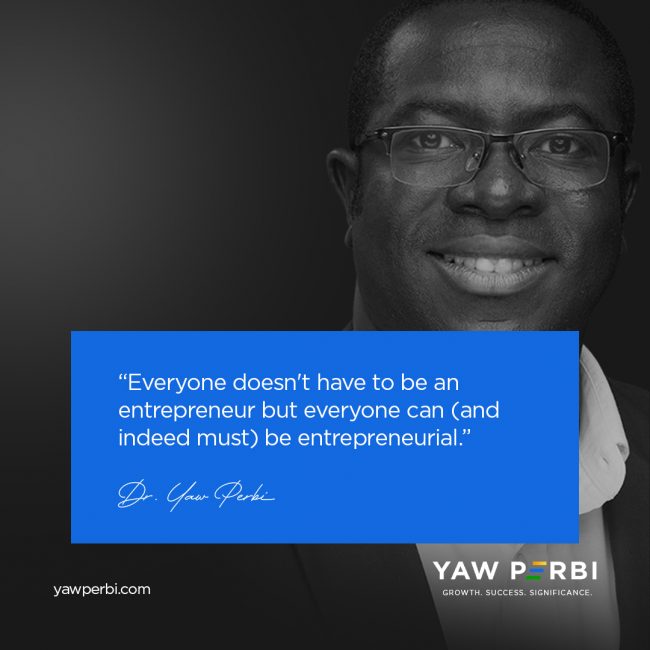
WANTED: Intrapreneurs!
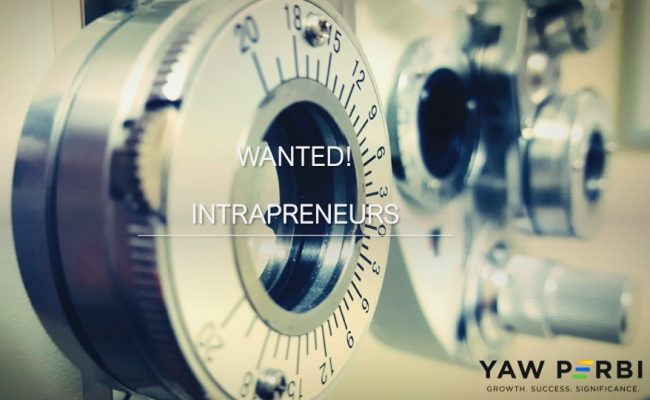
A YP presentation to the two dozen Perbi Cubs staff gathered for orientation and training at a hotel in Accra.
Have you ever come across a ‘WANTED’ notice? Have you ever been on one? People can be wanted for good and bad reasons. Today, I’m here to share a WANTED notice with you on behalf of several business owners I get to coach and on my own behalf as a serial entrepreneur, WANTED: INTRAPRENEURS!
This was my passionate call during the final day of a whole week’s orientation and training of two dozen staff of Perbi Cubs Library Services, an evidence-based, cost-effective, literacy-promoting endeavour co-founded by my wife Anyele Perbi and I. This social enterprise has grown to serve 2,000 children in 200 schools and is set to scale some 10 times in the coming new school season (Deo volente) as a result of an innovative digital online library solution we’re partnering with various leading schools to roll out. The ‘problem’ of Covid-19 presented this entrepreneurial opportunity. I challenged our employees to become intrepreneurs. Here’s why.
WHAT’S IN A NAME?
First of all who is an entrepreneur? An entrepreneur is simply a person who sets up a business or businesses, taking on financial risks in the hope of profit. Investopedia offers an expanded definition of this as follows: “An entrepreneur is an individual who creates a new business, bearing most of the risks and enjoying most of the rewards. The process of setting up a business is known as entrepreneurship. The entrepreneur is commonly seen as an innovator, a source of new ideas, goods, services, and business/or procedures.” My definition is as simple as this: an entrepreneur is a problem-solver for profit.
Entrepreneurship is certainly not a job, it’s not even a profession or career; it’s a mindset and lifestyle. It is a mindset and lifestyle of taking ownership and risk to innovatively solve problems for profit. Hence employees who think and act like entrepreneurs are called intrapreneurs.
Intrapreneurs are employees who behave like Entrepreneurs. They have a work attitude and style that integrates response-ability, risk-taking, ownership, innovation (ROI). I like the acronym ROI because intrapreneurs really provide the best Return on Investment for their employers, business owners and indeed all stakeholders. The first written use of the term ‘intrapreneur’ appeared in a 1978 paper by Gifford and Elizabeth Pinchot entitled Intra-Corporate Entrepreneurship but prior to that the poster child for intrapreneurship had been Art Fry of the 3M company, four years before (I shall summarize his story shortly). The Pinchots’ first book, Intrapreneuring: Why You Don’t Have to Leave the Corporation to Become an Entrepreneur (1985), presented an expansion of the intrapreneurship concept where they defined intrapreneurs as “dreamers who do. Those who take responsibility for creating an innovation of any kind within an organization.”
Here’s a more elaborate definition of Intrapreneurs by Jordan Daykin in Forbes magazine: “A team of competitive, confident individuals who are committed to innovation, passionate about work and producing higher value for their employer [indeed, all stakeholders]. They will need to have an entrepreneurial spirit, be activators of ideas and have a willingness to take calculated risks. In return for their desire to help the growth of the company over financial reward, they will receive support and resources to help make their ideas a reality.”
ART FRY THE INTRAPRENEURSHIP POSTER CHILD
Today, it’s hard to avoid 3M products, especially those sticky notes of theirs. The company is worth $5 billion with a recurring spot on the enviable Fortune 500 list but what most people don’t know is that its success is largely one of the power of intrapreneurship. In 1968, a 3M engineering employee called Art Fry attended a seminar given by another 3M scientist, Spencer Silver, on a unique adhesive the latter had developed. This innovation had an unusual molecular structure that gave it the unique characteristic of being strong enough to cling to objects but weak enough to allow for only a temporary, non-damaging bond. It is reported that the scientific community didn’t take Silver seriously and he himself was still searching for a marketable use of his invention.
As the legend goes, Fry sang in his church choir on nights, and he used slips of paper to mark the pages of his workbook. When the book was opened, however, the makeshift bookmarks often moved around or fell out altogether defeating the whole point. On a Sunday in 1973, it occurred to him that Dr. Silver’s adhesive could be put to use in creating a better bookmark. If it could be coated on paper, Silver’s adhesive would hold a bookmark in place without damaging the page on which it was placed. Being the intrapreneur that he was, the next day, Fry requested a sample of the adhesive and began experimenting with it, coating only one edge of the paper so that the portion extending from a book would not be sticky. Fry experimented with writing notes to his boss, which broadened his original concept into the innovative Post-it Note product.
In 1978, 3M marketed the sticky notes under the name “Press ‘n Peel.” Two years later, after sampling in 11 states across the country, 3M officially released the first Post-it Notes. They were a massive success right away, resulting in over $2 million in sales after only a year on the marketplace.
IF YOU DO GOOD…
The company 3M isn’t the sole beneficiary of Fry’s intrapreneurship. Time and space wouldn’t allow me to list all the accolades and achievements of Art Fry as a result of his intrapreneurship. As the saying goes, “If you do good, you do it for yourself, really.” Things have a way of coming back to us, don’t they? What we sow, we reap. In return for their desire to help the growth of the company over financial reward, not only do entrepreneurs “receive support and resources to help make their ideas a reality” (as Daykin says above and the Fry-3M story shows), they also obtain skills for their own concurrent or future enterprises, they can expect that others would treat them and their businesses the way they treated another’s. Intrapreneurs are singled out for extraordinary opportunities (I’ve done that for several people) and can always come back for referrals and recommendations from their managers/leaders/business owners. Above all, if you do good, you do it not only for yourself but also for your God. Then His kingdom will come more fully on earth as it is in Heaven.
“THIS IS MY FATHER’S WORLD”
The Good Book exhorts all and sundry, “Whatever you do, work at it with all your heart, as working for the Lord, not for human masters.” That is more than stewardship, I think. That is ownership right there. Taking ownership of the work one does not because they are owner per se, but because their Father in Heaven owns all things. “For everything comes from him and exists by his power and is intended for his glory. All glory to him forever! Amen.”
Sadly, I’ve heard people in Ghana who should know better, questioning a diligent and passionate worker taking risk and ownership and being innovative, an intrapreneur, as follows: “Adɛn? Adwuma no ɛyɛ wo papa dea?” To wit, “Why this hard work? Is this enterprise/organization your father’s?” The answer is supposed to be an apparent “no” but what if everyone of us who calls God “Father” responds, “Ampa! ɛyɛ me papa dea!” Meaning, “Yes! Of course! It is my Father’s. This is my Father’s world.”
LET’S DO THIS!
I wish everyone was an entrepreneur like my wife and me since there are enough problems to be solved in our world and profit to be made as a reward. Besides, I encourage people to separate their profession from their business, meaning, the fact that they have some employment or career does not exclude them from owning a side business for multiple streams of income (as long as you’re doing excellently well in your regular job and not robbing Peter to pay Paul). But the reality is that not everyone will be a business owner. Indeed, everyone doesn’t have to be an entrepreneur but everyone can (and must) be entrepreneurial, especially as an intrapreneur.

You Don’t Know What You’re Missing!

An August 2021 training for the Certified Professional Coach designation as a collaboration between Yaw Perbi (YP) Executive Education company and Wainright Global. We represented several U.S. states (from coast to coast), Canada, England, Ghana, Kenya, Romania, Rwanda and Uganda.
Growing up, my father was an ardent follower of the gospel singer André Crouch. Consequently I got indoctrinated early, hearing these songs from vinyl records at home and cassette tapes in the car. One of Crouch’s Christian apologetic songs that still rings in my mind today boldly claimed, “You don’t know what you’re missing until you’ve met the Lord!” Having met the Lord myself, I concur. But today, let me share what else you don’t know you’re missing.
I would really love to talk to you about the power of coaching. I say you don’t know what you’re missing because in my experience, most people don’t grasp the power of coaching, no matter how hard I try to explain the power of coaching to them until they have tasted it for themselves, even if it is a free 30-minute ‘chemistry session.’ It’s one of those you-don’t-know-what-you-don’t-know-until-you’ve-experienced-it kind of things. It really makes me to see the wisdom in sales strategies like the ones car salesmen employ, where they allow you to do a free test drive. As you sink into the comfort of those leather seats and cruise in that Mercedes, Range Rover or whatever, all of us a sudden you realize what you’ve been missing and that you really ‘needed’ this car, you just didn’t know it prior! (laughs)
MY BREAKTHROUGH
Until I got a coach myself, there were certain things like revising and expanding my old books that had stalled for ten years! All of a sudden, with the clarity that came from the socratic questioning and the power of accountability I got going, and have never turned back since. That was passive income and active impact I had been leaving on the table for a decade! This experience is one of the reasons I insist that even a coach needs a coach. Every leader needs a coach. In fact, every breathing human being needs a coach!
SISTER-SISTER
At Yaw Perbi (YP), C-level/C-suite executives are our strong suit. One of our earliest encouragements in our coaching practice was when a Vice President of a significant global mining firm who had been cautiously optimistic about coaching signed up to try it for six months. By her first couple of sessions she was enjoying the benefits of coaching–the inspiration, clarity of thought, transformation, skills, resources, accountability etc.–so much that she offered to give her best friend, an engineer with a multilateral organization, a birthday gift of a six-month coaching package from YP.
While I wait to share their powerful testimonials with you via video powerful 1-2 minute videos, here is a short and impressive one-minute video of Dr. Chinweike Eseonu, a Nigerian coaching client resident in the United States. This former professor of engineering at Oregon State University met his 12-month coaching goal in half the time, through our coaching! Again, his too was a six-month gift from his sister, a medical doctor in the States. Chinweike and another coaching client in the United States have both met their coaching outcome to find new jobs that they are passionate about and which pay them much better. In fact, the other coaching client has had a 51% pay raise in her new offer, which also affords her an opportunity to move from her current state of Texas to Wisconsin, away from a lot of bad memories from a hard divorce.
HELP US HELP PEOPLE KNOW WHAT THEY’RE MISSING
Friend, if you’re not being coached, you are missing out a lot! Get coached today! One of the things we want to ensure does not become an excuse is, “well, there are not enough good, certified coaches around.” Also others like, “I cannot find one I have good chemistry with” or “there’s none within my budget.”
At our executive education company, we are on a coaching revolution to see every leader being helped to authentically live and optimally make decisions by training and certifying 60 Certified Professional Coaches (CPC) between August and December who will then impact another 700-800 leaders by the end of the year.
So apart from getting coached yourself, if you are someone who loves people, loves to see people develop, if you have the patience to listen to others without judgment and create a safe space where through your powerful, socratic follow-up questioning they can clarify their thoughts and desires regarding their lives and goals and provide the accountability for follow-through, then why not get trained and certified to help others in this way? It is a great way to make impact and income simultaneously.
The are people waiting for you to help them, from ‘the least of these’ to the highest flying leaders. Every leader needs a coach, and I’m proud to be part of the biggest network of coaches in Africa, Breakfast Club Africa, with the big dream that one day every African president will have a coach. The continent will not be same; you won’t recognize the African continent because not only will these leaders be supported to make optimal decisions and to be authentic leaders, they would have the framework for voluntary accountability to deliver what they have said to themselves (let alone to the masses) that they want to accomplish.
Below is the information for the next round of training and certification on September 25 & 26, 2021. Join the revolution! Register now, here.

